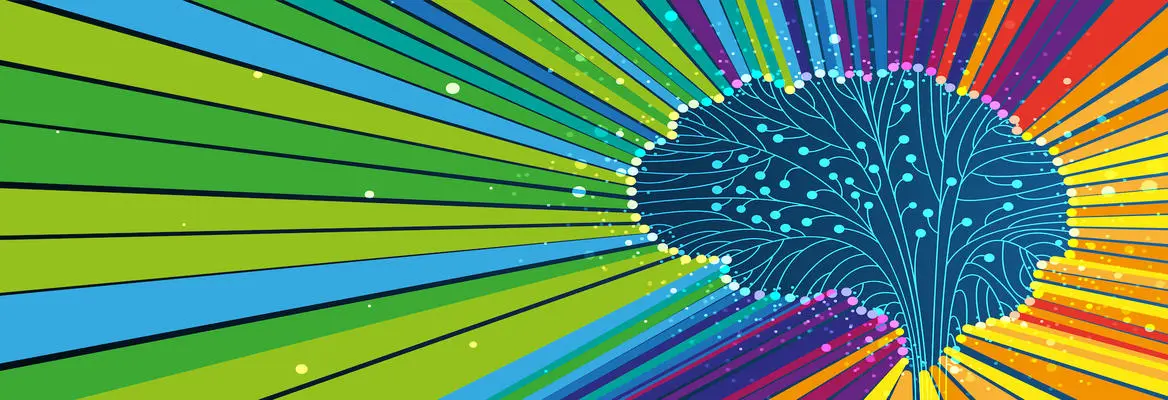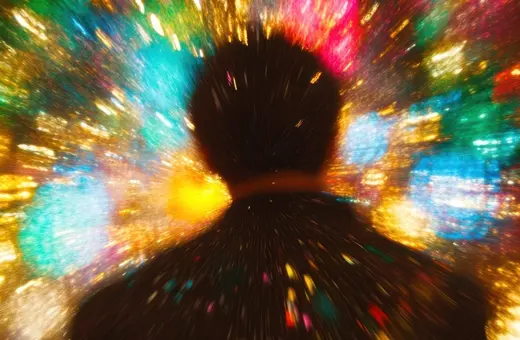The materialist assumption that consciousness is produced by the brain is on the decline. New theories, such as panpsychism, the idea that consciousness exists throughout the physical universe, are on the rise. But what about other alternatives? The notion that the brain acts as a reducing valve for consciousness was supported by the likes of Henri Bergson and Aldous Huxley, and could offer our best alternative to the materialist worldview, writes Paul Marshall.
Consciousness is generated by the brain, isn’t it? Neuroscientists have commonly assumed so, and it is easy to understand why. Our everyday experiences are highly dependent on the brain and nervous system. For example, a stiff blow to the head knocks the living daylights out, as addled boxers can attest. Damage to the primary visual cortex at the rear of the brain shuts down conscious visual perception. Alterations to the brain’s neurotransmitter chemistry through illness or psychoactive drugs impacts on perception, cognition, and mood. Psychedelics, such as LSD and mescaline, can have particularly dramatic effects, ranging from superlative highs to abject lows.
Plainly consciousness—or at least consciousness as we ordinarily know it—is highly dependent on the brain. However, it may be a step too far to assume that consciousness is produced by the brain. Dependence is not the same as production. Consider some analogies. Cool, clean air flows from a conditioning unit, but the unit does not produce the air: it merely extracts air from outside, cooling it and filtering out impurities. A washbasin tap does not generate water; it just regulates the flow. Sunlight floods into a room when the blinds are opened, but the blinds do not create light. They permit transmission of light into the room.
The operative words are filter, transmit, permit, channel, select, extract, limit, regulate, condition, modify—not produce, generate or create.
Analogies of this kind proved useful when, at the close of the nineteenth century, several philosophers and psychologists—notably William James, Frederic Myers, F. C. S. Schiller, and Henri Bergson—dissented from the growing physiological reductionism of the time and came up with an alternative to the production theory of brain action. This was the filter or transmission theory of brain action, or ‘filter theory’ for short. Here the brain plays a key role too, but rather than producing consciousness, it draws upon pre-existing consciousness. The operative words are filter, transmit, permit, channel, select, extract, limit, regulate, condition, modify—not produce, generate or create.
Filter theorists maintain that everyday consciousness is supported by a hidden field or ‘reservoir’ of consciousness. The idea arose at a time when the concept of ‘subconscious’ mind had been receiving much attention. Some thinkers, such as the physiologist W. B. Carpenter, understood subconscious mental activity in purely physiological terms, as ‘unconscious cerebration’, while others were willing to attribute consciousness to the subconscious. James, Myers, Pierre Janet, and others understood dual or multiple personality as evidence of hidden states of consciousness co-existent with the everyday one. This notion of ‘subliminal’ or ‘transmarginal’ consciousness promised to shed light on a diverse range of puzzling phenomena, abnormal, normal, and supernormal, from sleep walking and hysteria, through memory and dreaming, to creativity, psychical phenomena, and mystical experience.
According to filter theory, ordinary or ‘supraliminal’ consciousness derives from the subliminal sea of consciousness through the limiting activity of matter—or more specifically the brain and nervous system, and associated psychological processes.





















Join the conversation